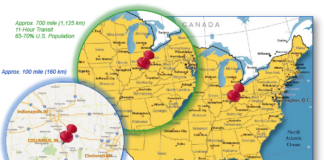The dispatches from the front lines of the global economic catastrophe have taken on a markedly schizoid quality during the past few days.
In Washington, U.S. Treasury Secretary Hank Paulson executed yet another of his patented two-and-a-half backwards somersault, triple-salchow maneuvers. We haven’t received any scoring for Hank’s performance yet, presumably because the judges are waiting to see if he breaks his neck on the landing.
After funneling about $290 billion in bailout funds to an unspecified number of financial institutions during the past month, Paulson told Congress in no uncertain terms last week that he had no intention of serving up any more huge portions of federal moolah.
Then, on Monday, Paulson announced he was bailing out Citigroup to the tune of about $300 billion in debt guarantees and $20 billion in cash. On Tuesday, he announced that the Federal Reserve will pump out $800 billion in loans to anyone who wants to buy a house or a car. Hank, who apparently has more rescue formulas percolating in his head than Sybil had multiple personalities, didn’t specify who would supply the cash for this sudden burst of largesse. He didn�t have to — we could all hear the emergency printing presses at the Treasury roaring to life and spewing out extra-crispy Franklins.
Adhering to the pattern of his previous mega-bailouts, Paulson didn’t ask for any management changes at Citigroup before he handed them $20 billion. He also didn’t ask them to rethink the $20 million they are spending annually to put their name on the Mets’ new ballpark. If he runs true to form, Hank probably will show up at Citi Field on Opening Day and get beaned by the first pitch.
Before the markets could get roiled by Paulson’s frenetic careening, President-elect Obama emerged again in Chicago to reassure us that he has at least one hand on the steering wheel while Hank goes through his contortions and President George W. Bush models Peruvian leisure outfits during his farewell tour. The preternaturally calm Obama administered a hefty dose of verbal valium to bring us down from Paulson’s amphetamine-speak. Things eventually will work out, he told us, but it will take some time. And oh, by the way, it would be very useful if Congress could authorize about $700 billion in new public works spending before Christmas.
Obama had his new crew of top economic advisors standing beside him as he administered this balm. Thankfully missing from this group was Robert Rubin, who ran the Treasury Department under President Clinton and was last seen two weeks ago standing behind Obama with a bevy of economic heavyweights at the president-elect’s first post-election news conference. In the brief interregnum between Obama’s first and third press conferences as president-elect, Rubin’s reputation as an economic wise man evaporated in a cloud of radioactive coverage of the Citigroup implosion.
After he left Treasury, Bob raked in more than $100 million by steering Citigroup directly into the heart of the Bermuda Triangle of derivatives, sub-prime mortgages and credit-swaps that has devoured a large chunk of the global financial system. Before the government stepped in with a bailout on Sunday night, Citigroup’s stock price had collapsed to less than $4 per share.
Meanwhile, the scope of the global economic debacle continues to come into focus. The price of a gallon of gasoline, our favorite leading economic indicator, fell to $1.75 this week, a 60-percent drop from June’s high of $4.08. And, according to a report in today’s New York Times, growth in the Chinese economy is forecast to hit 5.5 percent in the fourth quarter, down from its peak of 12 percent in the first quarter. Hard times, indeed.
Over in Detroit, the top execs of the Big Three automakers were trying to figure out how to get back to Washington for their second bailout hearing after grounding the private jets they took to the first one. Presumably, they are arguing over who gets to drive the minivan across Pennsylvania after they stop for funnel cakes and a case of Rolling Rock.
As we were trying to catch our breath from all of these shenanigans, a breathtaking announcement from our friends in Dubai came sailing over the transom. They sent us some dramatic renderings of what soon will become the world’s tallest building, a mega-project known as the Nakheel Harbour & Tower.
Anchoring the project is a mile-high structure that features four towers circling an internal void, linked together by ”sky bridges,” that will mitigate the effects of wind load and allow air to pass freely through the building. The mixed-use building will contain commercial offices, three sections of residential dwellings, and a hotel with a two-story observation deck.
The press release accompanying the drawings declares ”the design is an example of the human ability to overcome the forces of nature and harness them to create a monument dedicated to past, present and future generations.”
A mile-high building that overcomes the forces of nature. Now that’s just the pick-me-up we needed.
Happy Thanksgiving, everyone.













![[VIDEO] Get More for Your Business in Ardmore. Oklahoma](https://businessfacilities.com/wp-content/uploads/2024/02/maxresdefault-324x160.jpg)
